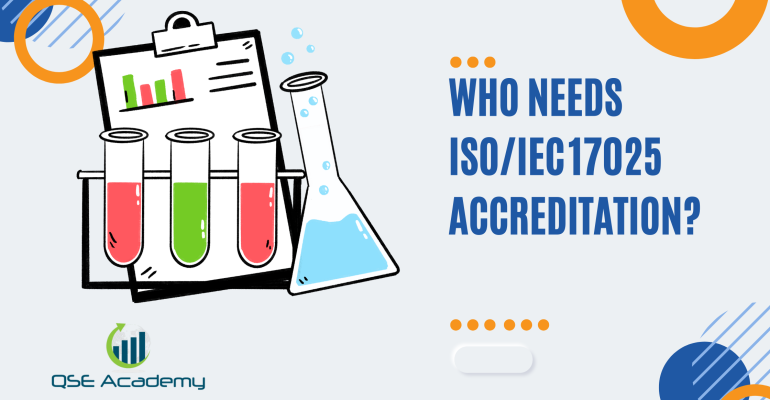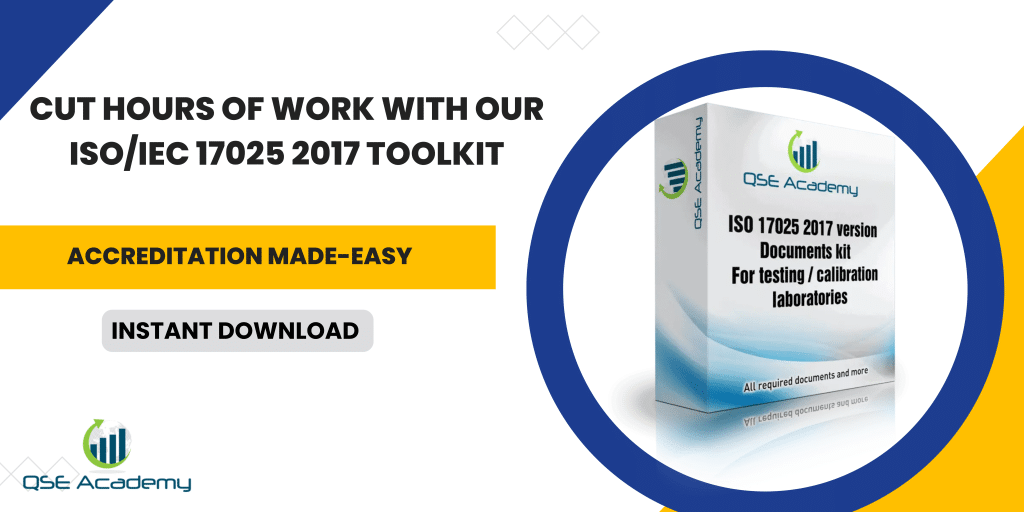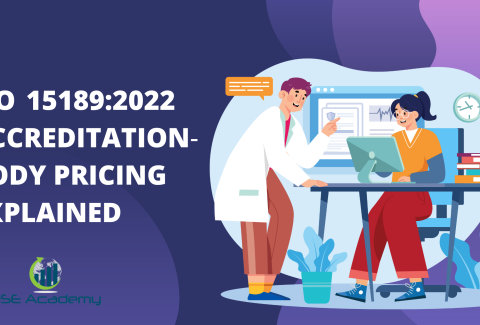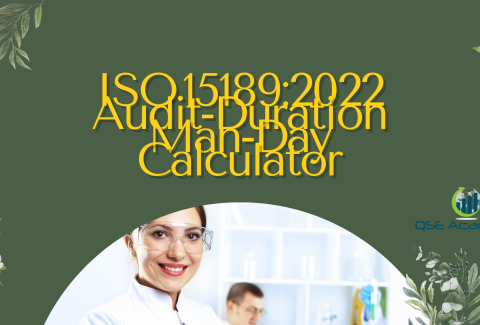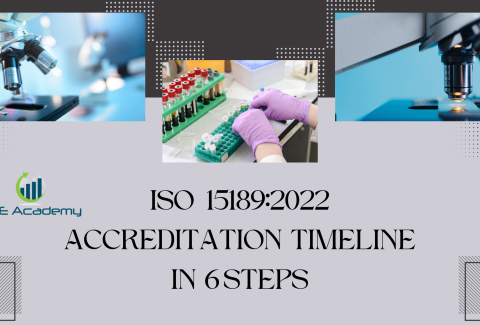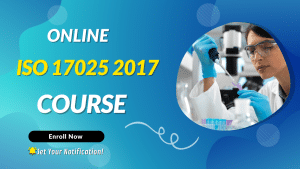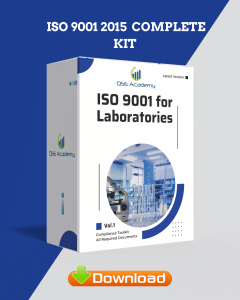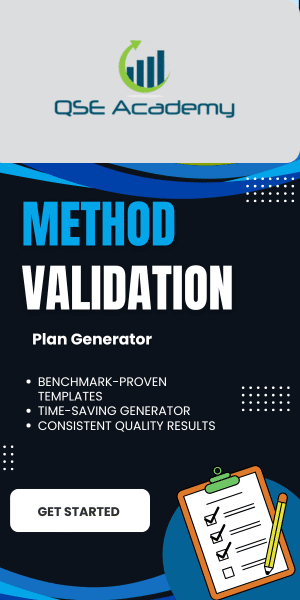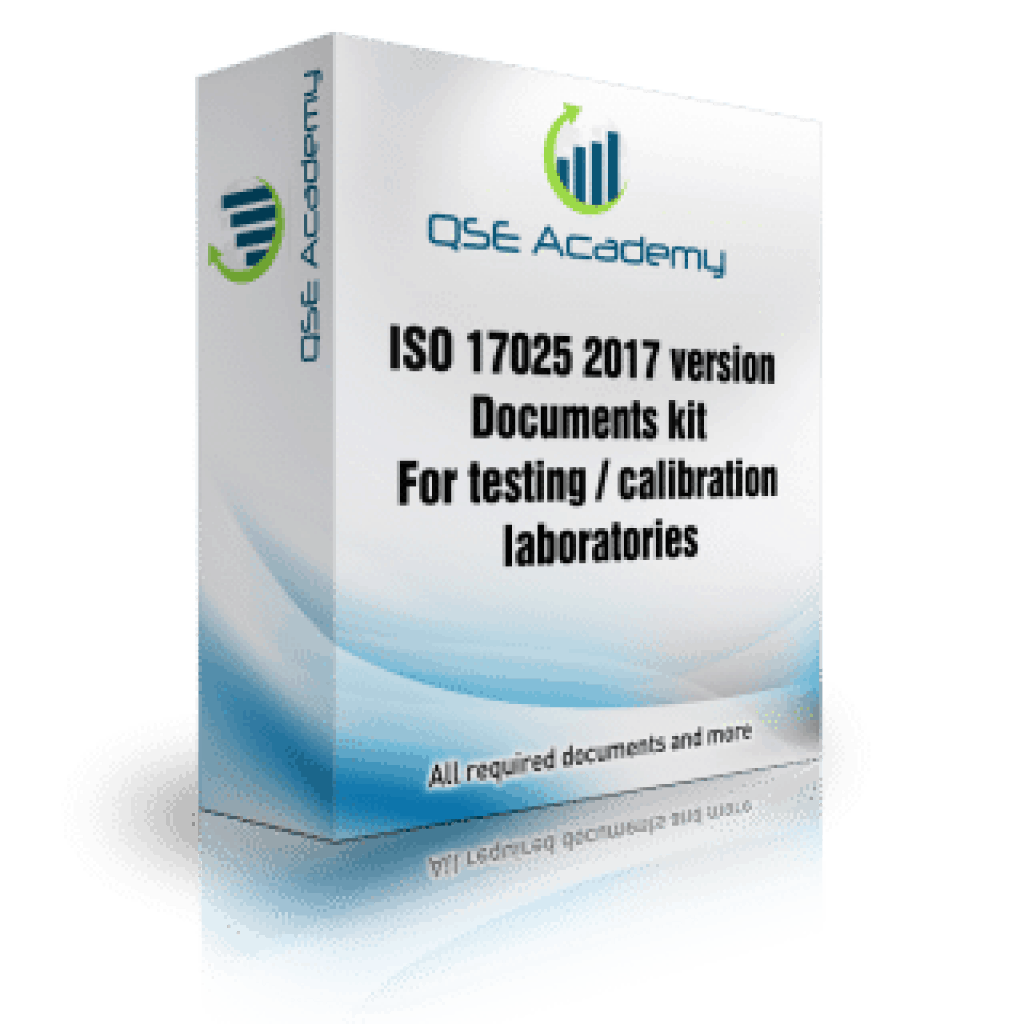Who Needs ISO/IEC 17025 Accreditation?
Last Updated on October 13, 2025 by
Introduction – Why ISO/IEC 17025 Matters More Than Ever
Here’s what I’ve noticed after years of working with testing and calibration laboratories—many teams aren’t really sure if they need ISO/IEC 17025 accreditation or not. Some think it’s only for big labs with fancy equipment. Others assume ISO 9001 already covers everything.
Let’s be real—it’s easy to get confused. The standards world can feel like alphabet soup, and nobody wants to waste time chasing a certification that doesn’t actually move the needle. But here’s the thing: ISO/IEC 17025 isn’t just about compliance. It’s about proving your lab’s competence—to clients, regulators, and even your own team.
I’ve helped labs from small start-ups to national reference centers implement 17025, and the difference is night and day. Accredited labs don’t just “test.” They demonstrate confidence in every result. Clients trust them faster. Regulators approve them quicker. And management finally sleeps better knowing their data stands up under scrutiny.
In this guide, we’ll break down exactly:
-
Who actually needs ISO/IEC 17025 accreditation
-
Why it matters for credibility and growth
-
When it might not be necessary—and what to do instead
By the end, you’ll know whether ISO/IEC 17025 is the right move for your organization—and how to take the first step without wasting months figuring it out.
Understanding ISO/IEC 17025 Accreditation (What It Really Means)
Let’s start simple. ISO/IEC 17025 is the international standard that defines what makes a laboratory technically competent and capable of producing valid, reliable results.
In other words, it’s not just about having good equipment or skilled staff. It’s about proving that every result your lab produces can be trusted—every single time.
Here’s what I often tell my clients:
ISO 9001 builds a good management system, but ISO/IEC 17025 builds confidence in your technical results.
Think of it like this: ISO 9001 makes sure your processes are organized; ISO/IEC 17025 makes sure your results are scientifically sound.
Now, a lot of labs confuse certification with accreditation—and that’s a big one.
Certification (like ISO 9001) means your management system meets the standard. Accreditation (like ISO/IEC 17025) means an external body has verified your technical competence.
Here’s a quick story.
A small materials testing lab I worked with was ISO 9001 certified. Everything seemed fine—until a major client asked for test reports from an ISO/IEC 17025-accredited lab. They lost the contract simply because they weren’t accredited.
We guided them through 17025 implementation, and six months later, they not only regained that client but started getting new inquiries from government agencies.
That’s when they realized ISO/IEC 17025 wasn’t a “nice-to-have.” It was the language of trust in the testing world.
Pro Tip:
If your lab issues test or calibration results that influence product quality, safety, or regulatory decisions, you’ll eventually be asked for ISO/IEC 17025 accreditation. It’s better to be ready before that moment comes.
Now that we’ve cleared up what ISO/IEC 17025 really means, let’s move to the question most labs ask first—“Who actually needs it?”
Who Actually Needs ISO/IEC 17025 Accreditation (Industries & Sectors)
Here’s the truth: not every lab needs ISO/IEC 17025 accreditation—but the ones that do can’t afford to go without it.
In my experience, there are four main groups that benefit the most from getting accredited:
1. Testing Laboratories
If your lab performs tests on products, materials, water, food, soil, chemicals, or anything that affects public health or safety—ISO/IEC 17025 is your ticket to credibility.
Clients and regulators want to know your data isn’t just precise; it’s provably accurate.
I’ve seen environmental and food testing labs gain government approval faster just because they had that accreditation seal on their reports.
2. Calibration Laboratories
Calibration labs live and die by precision. Manufacturers, hospitals, and research centers rely on their measurements every day.
When a calibration lab is ISO/IEC 17025 accredited, it proves its measurements are traceable to national or international standards.
That kind of assurance opens doors to more clients—and reduces disputes when things go wrong.
3. Government and Regulatory Laboratories
Many public or regulatory labs are required by law or policy to maintain ISO/IEC 17025 accreditation.
Whether it’s for environmental monitoring, forensics, or health compliance, the standard ensures consistency and trust across official results.
4. Third-Party and Contract Laboratories
If your lab provides testing or calibration services to external clients, ISO/IEC 17025 is often a requirement in contracts and bids.
Clients use it as a quick way to verify you’re credible and impartial. No accreditation? They move on to someone who is.
Now, let’s be honest—some labs chase accreditation just because their competitors have it. That’s a mistake.
The labs that truly benefit are those that use ISO/IEC 17025 to strengthen their systems, improve traceability, and reduce rework—not just to hang a certificate on the wall.
Pro Tip:
Before applying, review your client contracts and regulatory requirements. If they already reference ISO/IEC 17025, that’s your clear signal to move forward.
Now that we’ve covered who needs accreditation, let’s talk about why clients and regulators push for it so strongly.
Why Clients and Regulators Require ISO/IEC 17025 Accreditation
Here’s what I’ve noticed over the years: most labs don’t pursue ISO/IEC 17025 because they want to—they do it because someone asked for it.
And that “someone” is usually a client, regulator, or industry body that needs proof your results can be trusted.
Let’s unpack why this happens.
1. It’s a Shortcut to Trust
Clients don’t always have the time or technical background to audit every lab they work with. So they rely on accreditation as an easy way to know, “Yes, this lab meets international standards.”
That’s why many companies, especially in regulated industries, only accept results from ISO/IEC 17025-accredited labs.
I’ve seen this first-hand—a calibration lab once lost a five-year contract because the client’s new quality policy required accredited providers. They got accredited six months later and regained not just that client, but several new ones who’d been watching from the sidelines.
2. Regulators Use It to Ensure Consistency
For sectors like environmental testing, healthcare, or food safety, government agencies depend on data from multiple labs. Accreditation ensures all of them produce results that are consistent and comparable.
Without it, data quality varies wildly—and regulators can’t take action based on unreliable results.
3. It Minimizes Legal and Financial Risks
When a lab is accredited, it has documented proof that its results are backed by validated methods, calibrated instruments, and qualified staff.
That kind of evidence can protect you during disputes, recalls, or legal reviews.
4. It Strengthens Market Position
Many accredited labs leverage their status in bids, marketing, and negotiations. Accreditation signals competence—and competence sells.
Let’s be honest—accreditation might not win you every deal, but lack of it can easily lose one.
Pro Tip:
Treat ISO/IEC 17025 as a strategic asset, not a regulatory burden. Accreditation doesn’t just satisfy clients—it differentiates you from labs that are “good enough.”
Now that we’ve covered why it’s so valuable externally, let’s dig into the real business benefits labs experience once they’re accredited.
Business Benefits of ISO/IEC 17025 Accreditation (Beyond Compliance)
Let’s get real—many labs see ISO/IEC 17025 as a “requirement to tick off.” But once they’re accredited, they realize it’s much more than a compliance badge. It’s a business advantage.
Here’s what I’ve seen happen again and again: once a lab tightens its system under 17025, everything just works better. Fewer mistakes. Fewer client complaints. Fewer sleepless nights before audits.
Let’s break it down.
1. It Builds Client Confidence Instantly
When you’re accredited, clients don’t need convincing. The certificate itself tells them, “This lab meets international standards.” That kind of confidence shortens sales cycles and reduces back-and-forth over your methods or data.
I once worked with a small calibration lab that landed its biggest corporate client right after accreditation. Why? The client’s procurement policy literally required ISO/IEC 17025.
2. It Improves Process Control and Consistency
ISO/IEC 17025 forces you to document methods, monitor equipment, and train staff properly. Sounds tedious—but it pays off.
Labs that embrace this discipline usually see fewer retests, faster turnaround, and better reproducibility.
3. It Reduces Risk and Strengthens Defensibility
If something ever goes wrong—a product recall, a failed audit, or a client dispute—an accredited lab can show clear traceability of results. That level of transparency protects your reputation and your contracts.
4. It Boosts Internal Confidence and Morale
This is one most people overlook. When your team knows the system works and results are accurate, it builds pride and accountability. People feel like part of something credible, not just a routine testing shop.
5. It Opens Doors to Bigger Opportunities
Some sectors—like pharmaceuticals, construction materials, or environmental testing—simply won’t work with non-accredited labs. Accreditation is your ticket into those markets.
Pro Tip:
Use your accreditation strategically. Mention it in proposals, highlight it in reports, and communicate it in client meetings. Don’t let it just sit on your wall—make it work for you.
Now that we’ve talked about all the upsides, let’s be honest—not every lab needs ISO/IEC 17025. In the next section, we’ll talk about when it might not be necessary and what to do instead.
When You Might Not Need ISO/IEC 17025 (And What to Do Instead)
Now, here’s something most consultants won’t tell you—you don’t always need ISO/IEC 17025 accreditation.
I know that might sound odd coming from someone who’s helped dozens of labs get accredited, but it’s true. Sometimes, accreditation isn’t the smartest move right now.
Let’s break down a few real scenarios.
1. In-House or R&D Laboratories
If your lab only supports internal projects—say, product development or process optimization—then ISO/IEC 17025 might not be essential.
You’re not producing results for clients or regulators, so accreditation may add more overhead than value.
In that case, what you do need is a solid internal quality system—something that ensures traceability, documentation, and consistent testing.
2. Non-Regulated or Low-Risk Industries
If your results don’t affect public safety, health, or regulatory compliance, then you might be fine without accreditation.
But—and this is a big but—having some structure still matters. Think of implementing parts of ISO/IEC 17025, even if you don’t go for full accreditation yet.
3. Early-Stage or Small Labs Still Finding Their Footing
If you’re just starting out, jumping straight into accreditation can feel overwhelming. I’ve seen small labs rush it, only to burn out or lose focus.
Instead, start small. Build a foundation first—document your methods, train your people, and get calibration traceability in order. You can always go for accreditation once you’re stable.
Pro Tip:
If you’re not ready for full ISO/IEC 17025, consider aligning with ISO 9001 or a hybrid internal system. That way, when you do decide to get accredited, most of the groundwork is already done.
The key is being strategic. Accreditation is a tool, not a trophy. Use it when it serves your business goals, not just because it looks good on paper.
Now that you know when to pause—and when to push forward—let’s go over a quick way to decide if your lab should pursue ISO/IEC 17025 accreditation.
How to Decide If Your Lab Should Pursue ISO/IEC 17025 Accreditation
So now you might be thinking, “Okay, I get what it is and who needs it—but how do I know if we should go for it?”
Good question. I usually walk my clients through a quick checklist that helps them see the answer clearly. You don’t need a consultant to overcomplicate this—just some honest reflection.
Here’s how to figure it out.
Ask Yourself These Questions:
-
Do your clients or contracts require it?
If “ISO/IEC 17025 accreditation” is mentioned in your tenders, bids, or agreements, that’s your green light. You’ll need it to stay competitive. -
Do you provide results used for legal, regulatory, or safety decisions?
If yes, then accreditation isn’t optional—it’s a credibility safeguard. Regulators, courts, and auditors prefer (or require) accredited results. -
Do you serve multiple external clients?
Accreditation gives all your clients the same level of confidence without you needing to prove competence over and over again. -
Do you want to expand your market reach?
Many international clients or government agencies only work with accredited labs. Accreditation opens doors that would otherwise stay closed. -
Do you want to improve internal control and consistency?
Even if your clients don’t require it yet, implementing ISO/IEC 17025 can still strengthen your lab operations, data reliability, and staff accountability.
Here’s How I Usually Frame It:
If your results influence decisions outside your organization, you need ISO/IEC 17025.
If your results stay internal, you can start with a lighter quality system and grow into accreditation later.
Pro Tip:
Do a quick gap assessment before deciding. It’s the easiest way to see where you stand—and how much effort you’d need to become compliant. I always tell labs, “You don’t have to commit right away—just get clarity first.”
Once you’ve done that, you’ll know exactly where your lab stands and what your next move should be.
Now, let’s address some of the most common questions I get about ISO/IEC 17025—because chances are, you’ve wondered the same things too.
FAQs About ISO/IEC 17025 Accreditation
Whenever I talk to lab managers or quality heads about ISO/IEC 17025, the same questions always come up. So let’s clear the air and tackle the most common ones head-on.
1. Is ISO/IEC 17025 mandatory for all laboratories?
Not always. It depends on your industry, clients, and the type of work you do.
If your results impact public safety, regulatory compliance, or product certification, then yes—accreditation is typically required.
But if you’re an internal R&D lab or operating in a non-regulated space, it might be optional.
Still, I always remind teams that even when it’s not mandatory, it can still boost credibility and consistency.
2. What’s the difference between ISO 9001 and ISO/IEC 17025?
This one trips people up all the time.
ISO 9001 focuses on management systems—it makes sure your processes are consistent and customer-oriented.
ISO/IEC 17025 goes deeper. It looks at your technical competence—your staff qualifications, methods, calibrations, and measurement traceability.
In short: ISO 9001 proves you’re organized; ISO/IEC 17025 proves you’re accurate.
3. How long does it take to get accredited?
It really depends on where you’re starting.
If your lab already follows good quality practices, it can take around 6–9 months. If you’re building from scratch, expect closer to a year.
The key is preparation—documenting procedures, training staff, and running internal audits before the assessment.
Pro Tip: Don’t rush it. The goal isn’t just to “get the certificate”—it’s to build a system that actually works for your team.
4. How much does ISO/IEC 17025 accreditation cost?
Costs vary depending on your lab size, scope, and accreditation body. Most of the expense comes from preparation—training, method validation, and equipment calibration.
In my experience, small to medium labs should budget for both implementation and ongoing maintenance.
But think of it as an investment in reputation and trust, not a one-time expense.
These are just the starting questions. Once a lab begins the process, more specific ones come up about scope, uncertainty calculations, and assessor expectations—but by then, you’ll already have a clear roadmap.
Now that we’ve cleared up the common doubts, let’s wrap this up with what really matters—how to move forward confidently once you know whether ISO/IEC 17025 is right for you.
Conclusion – Take the Next Step Toward Accreditation
Let’s be honest—ISO/IEC 17025 accreditation isn’t just another certificate to hang on the wall.
It’s proof that your laboratory doesn’t just say it’s competent—it shows it through consistent, technically valid results.
In my experience, the labs that thrive after accreditation are the ones that see it as a growth tool, not a checkbox. They use the process to sharpen their methods, strengthen their credibility, and build client trust that lasts.
If you’re still wondering whether ISO/IEC 17025 is worth it, ask yourself this:
Would you rather compete on price—or on proven technical excellence?
Because here’s the thing—once you’re accredited, your lab isn’t just another testing facility. It becomes a trusted partner in your clients’ success stories.
So, what’s the next step?
Start with a gap analysis. See where your lab stands compared to the standard. From there, create a practical roadmap—one that fits your team, your resources, and your goals.
And if you need expert guidance through the process—someone who’s been there, solved the headaches, and helped other labs reach that same milestone—I can help you build a system that not only passes audits but actually improves your operations.
Key Takeaway:
ISO/IEC 17025 accreditation is more than compliance—it’s your lab’s passport to credibility, confidence, and continuous improvement.
I hold a Master’s degree in Quality Management, and I’ve built my career specializing in the ISO/IEC 17000 series standards, including ISO/IEC 17025, ISO 15189, ISO/IEC 17020, and ISO/IEC 17065. My background includes hands-on experience in accreditation preparation, documentation development, and internal auditing for laboratories and certification bodies. I’ve worked closely with teams in testing, calibration, inspection, and medical laboratories, helping them achieve and maintain compliance with international accreditation requirements. I’ve also received professional training in internal audits for ISO/IEC 17025 and ISO 15189, with practical involvement in managing nonconformities, improving quality systems, and aligning operations with standard requirements. At QSE Academy, I contribute technical content that turns complex accreditation standards into practical, step-by-step guidance for labs and assessors around the world. I’m passionate about supporting quality-driven organizations and making the path to accreditation clear, structured, and achievable.

